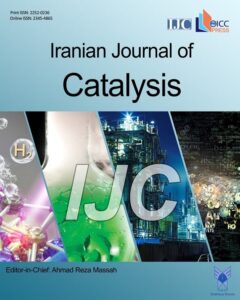Thermal regeneration and decoking optimization of chlorinated platinum/alumina catalysts for the isomerization process
Authors
Abstract
The samples of spent chlorinated Pt/Al2O3 catalysts that were used in the isomerization process were decoked at elevated temperatures under airflow and different oxygen concentrations. The surface of the catalyst was characterized by thermal gravimetric analysis, differential scanning calorimetry, Brunauer-Emmett-Teller analysis, attenuated total reflection fast Fourier infrared spectroscopy, scanning electron microscopy and energy-dispersive X-ray elemental mapping. The effective parameters for the catalyst decoking optimized were coke burning temperature (450-600 ), temperature ramp (5-25 /min) and oxygen content of the feed gas (0.5-2.0% vol.) in a tubular fixed-bed reactor using the response surface experimental design method. The spectroscopic tests were set based on the absorbance at 1390 cm-1, representing the surface coverage of platinum-alumina, and the results revealed that the greatest safe regeneration of chlorinated Pt/Al2O3 catalyst is achieved under a specific concentration of oxygen, temperature domain and thermal ramp. Moreover, the mechanism and the reaction rates of the decoking step of the catalyst regeneration were examined and the kinetic parameters of chlorinated Pt/Al2O3 decoking were determined.


